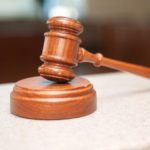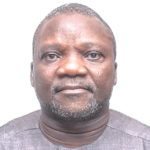With a year to the presidential election, there is concern in certain quarters if 2023 will not be a playback of the past. KUNLE ODEREMI writes.
From 1999 till date, many key issues inherited from the long years of military interregnum have subsisted under civil rule in the country. These issues cut cross various areas. One is them bothers on how to achieve and enthrone good governance based on the principles of transparency, accountability and integrity.
Ratings by various global bodies of the efforts of the country at attaining that goal indicate that it remains a tall dream. According to them, the country is still a chess poll of corruption. The other nagging issue is the fractured economy, which many Nigerians, had hoped could bounce back, following the exit of the military from power and the ushering of a civilian era. The general expectation was that Nigeria would migrate from being a mono-product economy to a diversified one, given the abundant human and natural resources of the country. The assumption was predicated by the consistent promises by political leaders to herald a paradigm shift in economic policy anchored on growth and development, as well as sustenance and continuity as opposed to policy somersault.
More than 22 years after the change of guard, that appears a forlorn hope as the economy has wobbled and fumble to the chagrin of even the international community. The hitherto collapsed manufacturing sector remains prostrate with the multiplier effect of job losses, rise in crime wave indiscriminate importation of goods, including non-essential items. While the real sector, which ought to fire the productive areas of our national life is comatose, attempts at inflating the dilapidated infrastructure have only resulted in a fit-and-start scenario, especially in the power and energy sectors. The harrowing experience of the populace is compounded by the intractable problem of insecurity. It has made life almost meaningful due to the activities of criminals. Horrific attacks by undesirable elements have left a tale of woes in many homes and communities, with little or no hope for redemption.
Seemingly uncontrolled population, unemployment rate and job losses arising from global economic crisis have conspired to place the country on edge. Above all, the issue of a lopsided federal structure and the attendant consequences like injustice, lack of equity and fairness are stumbling blocks to the attainment of nationhood, stability and progress in all ramifications even at post-military. The awesome power of the centre have reduced states to mere lap dogs and appendages of the central government. Quest for power devolution such that both the centre and states could have a coordinate power and responsibility based on the ideals and principles of a federal structure is in abeyance. In the opinion of an observer, IllyasuGadu, “Another issue that hangs around Nigerian politics and governance like an albatross has to do with our dangerous attachments to ethnic and religious leanings and to seek to interpret everything in our country along those lines. We are not Nigerians in the true sense of the word. Our sense of ourselves as Nigerians is defined to a large extent only by the geographical area covering the country rather than by shared values and identities. We identify ourselves more from our ethnic and religious perspective at the expense of the Nigeria we all belong.”
These and many other critical issues formed part of the promise by past presidential hopefuls before the lot fell on one of them under separate political transition programmes from May 1999. Each administration came up with its own intervention policies and programmes with varying code names, to return Nigeria to the path of security of lives and property; economic recovery, prosperity and social justice. A few instances will suffice. The Obasanjo presidency evolved NEEDS. There was the seven cardinal agenda of the Yar’Adua presidency. The Jonathan presidency blueprint was tagged a four-point agenda, while the Buhari presidency agenda was weaved around economic recovery, fight against corruption and security.
As the 2023 presidency beckons, many of these issues are bound to be on the front-burner. They are underline the current predicament of the vast majority of the citizens, regardless of creed or tribe. According to pundits, these issues should predominate as the political leaders sustain their debate other germane matters like zoning of elective offices in the emerging dispensation.
So far, no fewer than 12 persons have declared their interest to lead the country from 2023. They fall under different categories: high profile and politically exposed politicians; perennial contestants, unknown individuals who seem to be leaning on the social media to lift up their dream of becoming president. Excerpt for a couple of them, they have glossed over the core challenges besetting the country and which they ought to anchor their bid for the exalted position. Unlike the duo, they have not gone beyond proclaiming their presidential ambition in the public space without evidence of reaching out across board to accentuate their zeal, determination and seriousness and vision required to rekindle the hope of Nigerians in their country in spite of the present odds.
Aside new entrants, those that have made known their intention to succeed President Muhammadu Buhari at the end of his tenure in May 2023, include mostly former governors. Their individual records of performance as state chief executives have become a subject of public debate, with some persons alleging their lack of capacity to manage the country. The claims are countered by other citizens, who have identified and listed major areas of significant achievements such presidential aspirants when they were state governors. Another stand of their argument is that such aspirants are only exercising their constitutional right to contest for any elective office in the land, with the people possessing the sole right to either give them their mandate or dismiss them at the poll.
Since former Lagos State governor, Senator Bola Tinubu proclaimed his intent to run, another former governor and serving senator, Orji UzorKalu has followed suit. There are speculations about bid by another serving senator and former governor, RochasOkorocha and current Minister of Transportation, HonourableRotimiAmaechi and former governor and senator, Dr Musa Kwankwaso. The Vice President, Professor YemiOsinbajo, is believed to be under intense pressure to join the race.
What kind of president do Nigerians want?
The position of a celebrated columnist, Mr BayoOgunmupe, is the necessity for Nigerians to critically examine the challenges facing the country with a view to electing a president the country deserves in the next dispensation. His words: “The president we want is one who has the courage to create state police just as Bola Tinubu created 57 local governments and going ahead to win in the Supreme Court. Nigeria needs only those with the courage to do the needful, not those with PhD who don’t understand federalism. The new president must have the courage to amend the constitution to assure true federalism and the creativity to assemble technocrats for good governance. He must have the forbearance and ability to raise leaders, even when they compete with him for president.”
Mr Ezekiel Eya-Etok is the director-general, Nigeria first project and steering committee member of the National Consultative Forum (NCF). The body has initiated a process designed to recruit a credible and responsive leader for the country in 2023 to challenge the candidates of the Peoples Democratic Party (PDP) and the All Progressives Congress (APC). He said the project was principally informed by the desire to promote good governance. Eya-Etok said: Politics is the process that takes you to the governance platform. When you get on the governance platform, which is the management of the people, you can’t but be professional to get the desired result.” He said the searchlight of who leads the country in the next dispensation should be on professionals who had distinguished themselves in their chosen fields. He warned: “If you get a non-pilot into a cockpit that aircraft may crash, but if you get a pilot into an aircraft he would know how to stabilise the aircraft. Governance is not what you dash people, either at the local government or any level you recruit the best, it is like a bank. You recruit people to manage the resource for the general interest of all. And if we have this in mind the process that we look is the recruitment process of our leaders.”
Again Gadu speaks on what he regards as the missing links in leadership in Nigeria. He said the difference lies in how the leadership approaches national challenges, especially from what obtains other climes. His words: “To be sure, there is no country that is immune from challenges at whatever period of its existence. But the difference between success or failure to manage these challenges lies mainly with the leadership and how it copes with the issues of governance that come up from time to time in the life of a nation.
In this regard, looking at the degenerating situation in Nigeria across all facets of our life, the abject failure of leadership at all levels to engender confidence in their ability to come to grips with the deep challenges facing the country is glaring. Hence the dangerous but understandable doubts among a growing number of Nigerians that the country’s future existence is uncertain. This feeling is gaining greater traction as we inch towards the next circle of elections in 2023 which many believe might be more problematic than previous ones.”
WATCH TOP VIDEOS FROM NIGERIAN TRIBUNE TV
- Relationship Hangout: Public vs Private Proposals – Which Truly Wins in Love?
- “No” Is a Complete Sentence: Why You Should Stop Feeling Guilty
- Relationship Hangout: Friendship Talk 2025 – How to Be a Good Friend & Big Questions on Friendship
- Police Overpower Armed Robbers in Ibadan After Fierce Struggle






